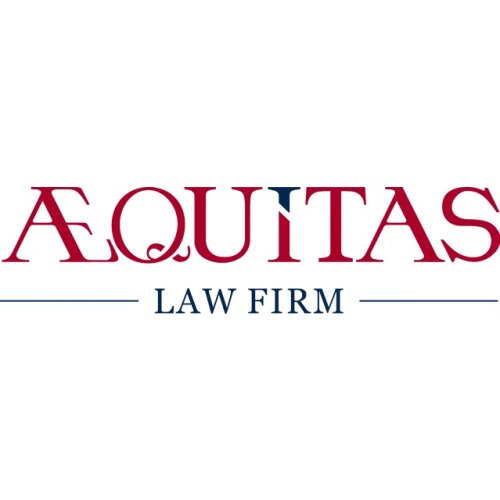Best Tax Increment Financing Lawyers in Almaty
Share your needs with us, get contacted by law firms.
Free. Takes 2 min.
List of the best lawyers in Almaty, Kazakhstan
About Tax Increment Financing Law in Almaty, Kazakhstan
Tax Increment Financing (TIF) is a financial tool used by municipalities to encourage economic development in specific areas. In Almaty, Kazakhstan, TIF is designed to stimulate private investment and increase property values within a designated zone. By capturing the future increase in property taxes resulting from these developments, the city can finance infrastructure improvements and public amenities without burdening current taxpayers. The legislation governing TIF in Almaty is tailored to align with regional development goals and the city’s strategic economic plan.
Why You May Need a Lawyer
Engaging with TIF in Almaty can be complex due to the legal, financial, and bureaucratic elements involved. A lawyer specializing in TIF can provide crucial guidance in the following situations:
- Understanding the eligibility requirements for TIF areas and projects.
- Navigating the application and approval process for TIF funding.
- Structuring development agreements and contracts to comply with local laws.
- Advising on compliance with regulatory requirements during and after project completion.
- Assisting in negotiations with local authorities and stakeholders.
- Addressing potential disputes or legal challenges.
Local Laws Overview
The TIF laws in Almaty are shaped by national legislation on local governance and economic development. Key aspects include:
- Designation of TIF Zones: Local authorities can designate specific areas for TIF, often focusing on underdeveloped or economically distressed zones.
- Approval Process: Projects within TIF zones require approval from municipal and regional governments, with a strong emphasis on demonstrating potential public benefit.
- Use of Incremental Taxes: Only the additional tax revenue generated from increased property values in the TIF zone can be used to finance the redevelopment projects.
- Duration: TIF agreements have a fixed duration, usually ranging from 10 to 25 years, after which the increased tax revenues revert to the regular tax rolls.
- Reporting and Transparency: TIF projects are subject to ongoing monitoring and reporting requirements to ensure transparency and accountability.
Frequently Asked Questions
What is the primary purpose of TIF in Almaty?
The primary purpose of TIF in Almaty is to encourage economic development and revitalization in designated areas by incentivizing private investment and using the resultant tax increments to improve infrastructure and public services.
Who is eligible to apply for TIF financing?
Eligibility for TIF financing typically extends to developers, property owners, and investors engaged in projects that align with the economic and community goals of Almaty's TIF program.
How are TIF zones decided?
TIF zones are designated based on several criteria, including economic need, potential for growth, and alignment with municipal strategic plans.
Is TIF funding available for residential projects?
Yes, TIF funding can be utilized for residential projects, particularly those that include affordable housing components or mixed-use developments.
Can TIF funds be used for project-related costs?
TIF funds can be applied to a range of project-related costs, including site preparation, infrastructure improvements, and public amenities, but not for operational expenses.
What happens if tax increments are insufficient?
If the tax increments fall short, the municipality must find alternative funding sources to cover the project costs, as TIF does not allow for shortfalls to impact general tax revenues.
Are there risks associated with TIF?
Potential risks include overestimating future tax revenues, changes in economic conditions, and unforeseen project costs, which necessitate careful planning and risk management.
How does TIF impact local taxpayers?
In general, TIF does not increase taxes for local residents. Instead, it redirects additional tax revenues generated by new development to finance related projects.
Can TIF areas be extended or modified?
Yes, existing TIF areas can be modified or extended subject to approval by local government bodies, often requiring justification for such changes.
Where can I find more information about specific TIF projects?
Detailed information on specific TIF projects, including financial reports and development plans, is typically available through the Almaty local government’s website or department responsible for economic development.
Additional Resources
For those seeking further information or legal advice on TIF in Almaty, the following resources and organizations can be beneficial:
- Almaty City Administration: Offers comprehensive details on TIF policies and procedures.
- Ministry of National Economy of the Republic of Kazakhstan: Provides guidance on economic development regulations.
- Chamber of Commerce and Industry of Kazakhstan: A valuable resource for networking with developers and investors.
- Legal Associations: Professional legal organizations that can recommend qualified attorneys specializing in TIF.
Next Steps
If you require legal assistance with TIF in Almaty, consider the following steps:
- Research and identify experienced lawyers who specialize in TIF and local economic development law.
- Prepare a list of questions and topics to discuss with potential legal advisors to ensure they understand your needs.
- Check references and verify the credentials of any legal expert before formalizing agreements.
- If needed, attend local seminars or workshops on TIF to gain a broader understanding of the process and requirements.
By following these steps, you can ensure that you are well-prepared to navigate the complexities of Tax Increment Financing in Almaty, Kazakhstan.
Lawzana helps you find the best lawyers and law firms in Almaty through a curated and pre-screened list of qualified legal professionals. Our platform offers rankings and detailed profiles of attorneys and law firms, allowing you to compare based on practice areas, including Tax Increment Financing, experience, and client feedback.
Each profile includes a description of the firm's areas of practice, client reviews, team members and partners, year of establishment, spoken languages, office locations, contact information, social media presence, and any published articles or resources. Most firms on our platform speak English and are experienced in both local and international legal matters.
Get a quote from top-rated law firms in Almaty, Kazakhstan — quickly, securely, and without unnecessary hassle.
Disclaimer:
The information provided on this page is for general informational purposes only and does not constitute legal advice. While we strive to ensure the accuracy and relevance of the content, legal information may change over time, and interpretations of the law can vary. You should always consult with a qualified legal professional for advice specific to your situation.
We disclaim all liability for actions taken or not taken based on the content of this page. If you believe any information is incorrect or outdated, please contact us, and we will review and update it where appropriate.











